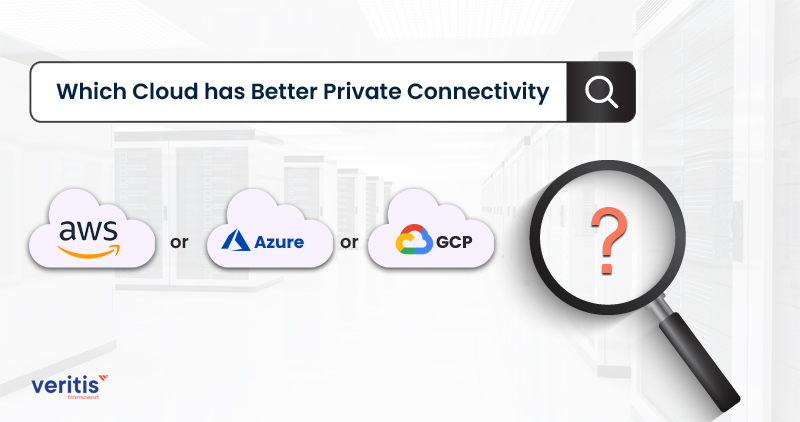
Cloud has sparked off a new working culture globally. People from various nooks and crannies contributed, modified, and collaborate to roll out deliverables faster than ever before. However, while the coalescence of efforts produced top-notch results, it raised the scope for various issues such as connectivity breaches, data espionage, and various threats that have arisen to spawn way for policies such as Zero Trust Strategy and DevSecOps. While there are many policies and security approaches, it often boils down to having a secure and swift connection in this age of connectivity.
While this may seem odd and overrated, having a secure connection is pertinent, especially after remote working has become a reality now. Unfortunately, while a fast Wi-Fi connection is deemed enough for most, it is an uplink that hackers can easily breach as the Wi-Fi connections at home have poor security. To anneal this flaw, cloud providers came up with a solution to provide an encrypted uplink for their customers. While that sounds easy, various variables are involved in the selection.
Before diving in, one should acknowledge that everyone has unique business requirements. This aspect is what is explored in this blog. The three biggest cloud providers have doled out their private connectivity tools: AWS Direct Connect, Azure ExpressRoute, and Google Cloud Interconnect.
So, let’s explore which connection is better suited for you without much ado.
Migrate to Cloud Services
Useful Link: AWS Vs Azure Vs GCP – The Cloud Platform of Your Choice?
AWS Direct Connect

Amazon released AWS Direct Connect in 2011, and it gained enough traction during recent times. It is a dedicated tool that provides a secure connection from their respective data center to AWS infrastructure. What sets it apart from regular weakly secured connections is that Direct Connect customers can circumvent the public internet connections while establishing a link to AWS. This betters the connectivity and stunts the network costs without shackling the bandwidth.
One can configure Direct Connect with various logical connections, and it opens the gateways to AWS tools which can range from Elastic Compute Cloud to Relational Database Service. Furthermore, this connectivity is capable enough to handle various tasks that would require significant and frequent AWS data transfers. Therefore, it is a given that Direct Connect can support lean or predictable data usage patterns, including real-time audio-visual feeds.
While Direct Connect sounds like a fortified internet connection, it is different than the regular internet one uses. Direct Connect is all about creating a different network connection between the AWS servers and the client-server. So, while it sounds similar to the internet, it is different as Direct Connect doesn’t run on the internet. This aspect wicks away any potential internet outages or over-reliance on local internet providers as AWS has your bases covered.
Useful Link: Amazon Web Services Disaster Recovery
Why Should One Use AWS Direct Connect
Security is one of the topmost concerns, and while external threats continue to derail companies, internal threats are no less dangerous. Employees knowingly or unintentionally throw open the doors to hackers who wreak havoc. While many variables lead to this outcome, it is essential to understand that data connections are easy to exploit for wanton gains. That is one of the primary reasons to get AWS Direct Connect. Additionally, AWS has stacked its reputation as a robust cloud platform which has enticed many cloud users.
Secondly, one of the benefits is scalability, as Direct Connect allows you to pump up the bandwidth speed with little to no effort. This bandwidth speed extension encompasses fixed data centers and backup servers. One can add more AWS tools and rest easy with Direct Connect as the AWS connection shoulders the load.
Lastly, the stunted reliance on the internet will not decrease your internet bills, but it also reduces the legacy infrastructure overheads. Often, legacy applications dent the wallet as maintaining them on Cloud is a pricey affair. While one can choose not to migrate them to the Cloud, most windup shifting them, eventually. With Direct Connect, the overheads are trimmed as the network access costs are significantly lower. One doesn’t have to expend many monetary resources to access S3 buckets or Elastic Cloud Compute.
Azure ExpressRoute

Azure’s private connectivity embodies the same spirit as AWS Direct Connect, as one can conduct their cloud tasks over the private connection. The connection bridges the gap between the on-premises infrastructure and Azure.
The Azure users can connect from any network, whether an Ethernet-enabled one or any virtual cross-connection. ExpressRoute bypasses the public internet pathway and creates an internet uplink that allows the Azure users to access the cloud resources. With significantly reduced latencies and more reliability, users of ExpressRoute can conduct business operations better as regular internet connections have the global populace hogging the bandwidth.
What effectively means is that ExpressRoute cuts the middleman, the internet service provider, out of the picture and speeds up things. This way, your cloud connectivity and cloud expenses are all rolled up into a package, reducing your reliance on third-party services.
Useful Link: Microsoft Azure Disaster Recovery Services
Why ExpressRoute?
Microsoft is one of the biggest companies, and it creates solutions that adhere to the law of the land. With ExpressRoute, the Azure users don’t have to route their customer data over the unencrypted internet, which is one of the main targets of threat actors. Additionally, the ExpressRoute abides by the General Data Protection Regulation (GDPR), removing unwanted legal hassles for the Azure clientele.
Additionally, Microsoft has one of the most significant footprints in the world. The IT giant chipped in when an undersea cable was laid to cater to its widespread global clientele. Microsoft’s high-speed undersea cable and other efforts ensured that its clientele enjoyed low-latency network speeds.
An additional advantage is compatibility. Microsoft’s tools and operating systems are used more widely than its rivals. By utilizing ExpressRoute, there is little to no chance of encountering compatibility issues.
Google Cloud Interconnect

Interconnect is similar to its rivals: ExpressRoute and Direct Connect. However, it houses two different tools under its Interconnect platform: Dedicated Interconnect and Partner Interconnect.
Dedicated Interconnect establishes a physical uplink between the customer’s on-premises infrastructure, Google Cloud, and resources. The connection allows one to move heavy amounts of data between the organization’s infrastructure and Google Cloud. The swift transfer of the massive amounts of data over Google’s Interconnect will remove the requirement to purchase additional bandwidth as the connection is physical.
Partner Interconnect is the second offering in the Interconnect, and it links the customer’s on-premises network and the customer’s virtual private cloud (VPC). The connection comes in handy should the customer’s data center’s physical location be unreachable by Dedicated Interconnect or if the data requirements don’t demand more than 10 GBPS connection.
Unlike ExpressRoute and Direct Connect, Google’s Partner Interconnect ropes third-party service providers to provide physical network connections to Google Cloud. Once the network link is established, the user can always request the Partner Interconnect connection from the service provider. With the Partner Interconnect in place, the user can initialize the data transfer while having the service provider’s support.
Useful Link: Disaster Recovery (DR) in Google Cloud
Why Google Cloud Interconnect
While AWS and Azure assume that their cloud tools are omnipresent, Google acknowledges the geographical constraints and relies on third-party service providers to reach its clients. This is Interconnect’s primary advantage over others. With the local internet provider in place, there is little effort required to establish the Interconnect connection with your on-premises.
Additionally, Google Cloud is known to sweeten the deal by offering discounts to its customers. These are just some of the benefits of using Google Cloud Interconnect.
Capping it Off
All three cloud services are in a league of their own with their private connectivity. Everyone has their expectations based on their requirements, which decides the private connectivity tool that is right for you.
Veritis, the trusted MSP for Fortune 500 companies and emerging organizations, understands its clients’ needs aptly and recommends cost-effective solutions that don’t compromise on quality. So, reach out to us and walk away with the private connectivity tool which is right for you.
Explore Cloud Services Got Questions? Schedule A Call
Additional Resources: